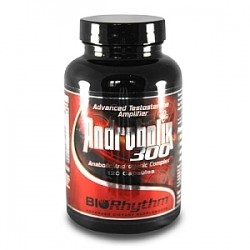Warning letter to Exclusive Supplements shows NDI enforcement here to stay, experts say

The ingredient in question, 4-etioallocholen-3,6,17-trione, is an ingredient included in a number of supplements made by various companies aimed at bodybuilders who use steroids.
Ingredient said to block steroid side effects
A number of steroids favored by this group of consumers can metabolize into estrogen in a process called aromatization, leading to unwanted side effects that can include breast growth in males. The ingredient that is the subject of FDA’s warning, 4-etioallocholen-3,6,17-trione, is thought to blunt this process, helping to manage this side effect of steroid use.
In the warning letter, the agency wrote: “FDA is not aware of any information demonstrating that 4-etioallocholen-3,6,17-trione was lawfully marketed as a dietary ingredient in the United States before October 15, 1994, nor is FDA aware of any information demonstrating that this dietary ingredient has been present in the food supply as an article used for food in a form in which the food has not been chemically altered.”
This leaves aside the issue of the provenance of the ingredient, i.e. whether it is chemically synthesized or derives from a natural source. In its draft NDI guidance issued in 2011, FDA has come down against so-called “synthetic botanical” (sometimes called “bioidentical”) ingredients, saying they are not lawful dietary ingredients. So it’s an open question whether even had Exclusive Supplements submitted an NDI notifcation on the ingredient (and FDA says the company has not), that FDA would have concluded that the ingredient was safe and lawful.
NDI status among many issues for inspectors
Jason Sapsin, a Denver-based attorney with the firm Fox Rothschild, said a problem with an ingredient’s NDI status might not be a casus belli for FDA in and of itself. But unlike in years past, FDA will delve into this aspect of a company’s formulations while it is the plant for other reasons, he said.
“I don’t think it is necessarily the case that you would see a warning letter go out if (an NDI issue) was the only reason,” Sapsin told NutraIngredients-USA. “But if the agency is in your facility and they begin to see problems that is one of the things that is going to get their attention.”
Antonio Gallegos, an attorney in the firm Greenberg Traurig, said the particular nature of this ingredient, which appears to have no hint of a natural origin or any real evidence of use before Oct. 15, 1994, may have put it into the realm of low-hanging fruit for regulators. In other cases, where an ingredient has been chemically altered to some degree from a previous version, the question becomes how much and what type of alteration renders it new, requiring a new NDI filing, Gallegos said.
“This is definitely at the front of FDA’s radar now. I think they would be willing to action when it is a relatively clear-cut case like this,” he said. “I think they are probably less likely to take action on more borderline cases, ingredients are are a derivative of something else. That is one of the sticky issues for industry right now; things that are similar to or derivatives of things that were already on the market.”
NDI enforcement is here to stay
To put Exclusive Supplements' NDI problem in perspective, the warning letter to the company is one of the lengthier such letters FDA has issued recently. The agency found problems with the company’s use of noncompliant disease claims on its products and with its testing policies, material handling procedures and its method (or lack thereof) of dealing with serious adverse event reports. Nevertheless, this is yet another warning letter that hinges at least in part on the NDI issue. There have several such letters in the last couple of years following long stretches when the NDI pot simmered gently on one of FDA’s back burners. The issue is unlikely to return to its former place in the scheme of regulatory priorities, Sapsin said.
“It is evidence of a shift. The agency’s intent to signal its seroiuousness about a facet of regulation. I think it is a warning,” he said.
















